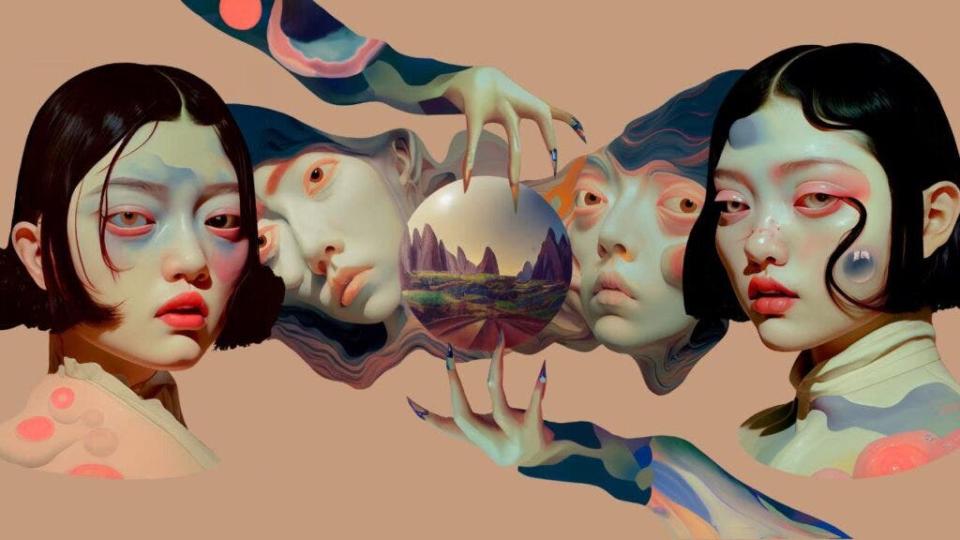
A recent lawsuit brought attention to the alleged misuse of copyrighted works by artificial intelligence (AI) art generator companies, including Midjourney, Stability AI, DeviantArt and Runway AI. The lawsuit, filed in November, accuses the companies of using a list of over 4,700 artists, including renowned figures like Norman Rockwell and Wes Anderson, to train their generative AI systems to produce artwork.
Don’t Miss:
An Unregulated Space
The controversy gained momentum when artist Jon Lam shared the list on social media, triggering discussions about the lack of regulation in the AI-generated art space. Midjourney, known for its AI programs creating images based on text prompts, faced allegations of stealing artists’ work without permission.
Some social media users shared a spreadsheet proposing additions to a “Midjourney Style List,” reportedly disclosed by Midjourney’s founder David Holz in the company’s public Discord server in 2022. Holz has not responded to requests for comment.
The list has exposed artists’ frustrations regarding the exploitation of AI-generated art, which has surged in popularity with apps like Lensa and Epik. Concerns arise as these mass-produced images profit from styles imitated by real-life artists, sparking debates about fair compensation and usage, including who owns the artwork.
In an amended class-action lawsuit filed by artists, the plaintiffs argue that AI-generated art is built on “human intelligence and creative expression” without the involved parties’ consent or credit. The complaint claims that profits flow to the companies through users paying for subscription services to the generative AI companies, while the original artists used to train the AI models receive nothing.
Tools such as the artwork generators from Midjourney and Dall-E are disrupting the multibillion-dollar gaming industry. These tools can create game artwork in seconds, compared to a human designer who might need days to develop imagery that fits the game’s look and feel. Developer Javi Lopez used GPT-4, Dall-E 3 and Midjourney to create a game called “Angry Pumpkins” that mimics the popular “Angry Birds” franchise in terms of gameplay. He built the game in just 12 hours using AI tools to create the code and the game’s artwork.
Artists Desire Proper Credit And Compensation
The controversy highlights broader concerns about the origin of AI-generated images and the potential financial impact on artists. Many artists, including those named in Midjourney’s list, expressed suspicion that AI programs were replicating their works directly rather than innovating new styles. The lack of proper crediting and compensation exacerbates these concerns. A startup firm that’s encouraging artists to continue following their passion is Masterworks. The company offers equity investing for individuals to invest in works of art, including pieces from artists such as Pablo Picasso, Banksy, Jean-Michel Basquiat and others.
The ongoing controversy involving Midjourney and other AI art tools has led to questions about the ethics of profiting from AI-generated art, prompting discussions about regulations and the need for consent and compensation for artists whose works contribute to AI training.
As the legal battle unfolds, artists hope for increased awareness and a shift toward ethical practices in the burgeoning AI art industry. The impact of AI on various creative industries, including Hollywood, underscores the need for comprehensive rules to protect artists’ rights in the age of rapidly advancing technology.
Read Next:
“ACTIVE INVESTORS’ SECRET WEAPON” Supercharge Your Stock Market Game with the #1 “news & everything else” trading tool: Benzinga Pro – Click here to start Your 14-Day Trial Now!
Get the latest stock analysis from Benzinga?
This article The 4,700-Artist AI Controversy: Artists Accuse Midjourney And Other AI Firms Of Unauthorized Use In Lawsuit originally appeared on Benzinga.com
© 2024 Benzinga.com. Benzinga does not provide investment advice. All rights reserved.






